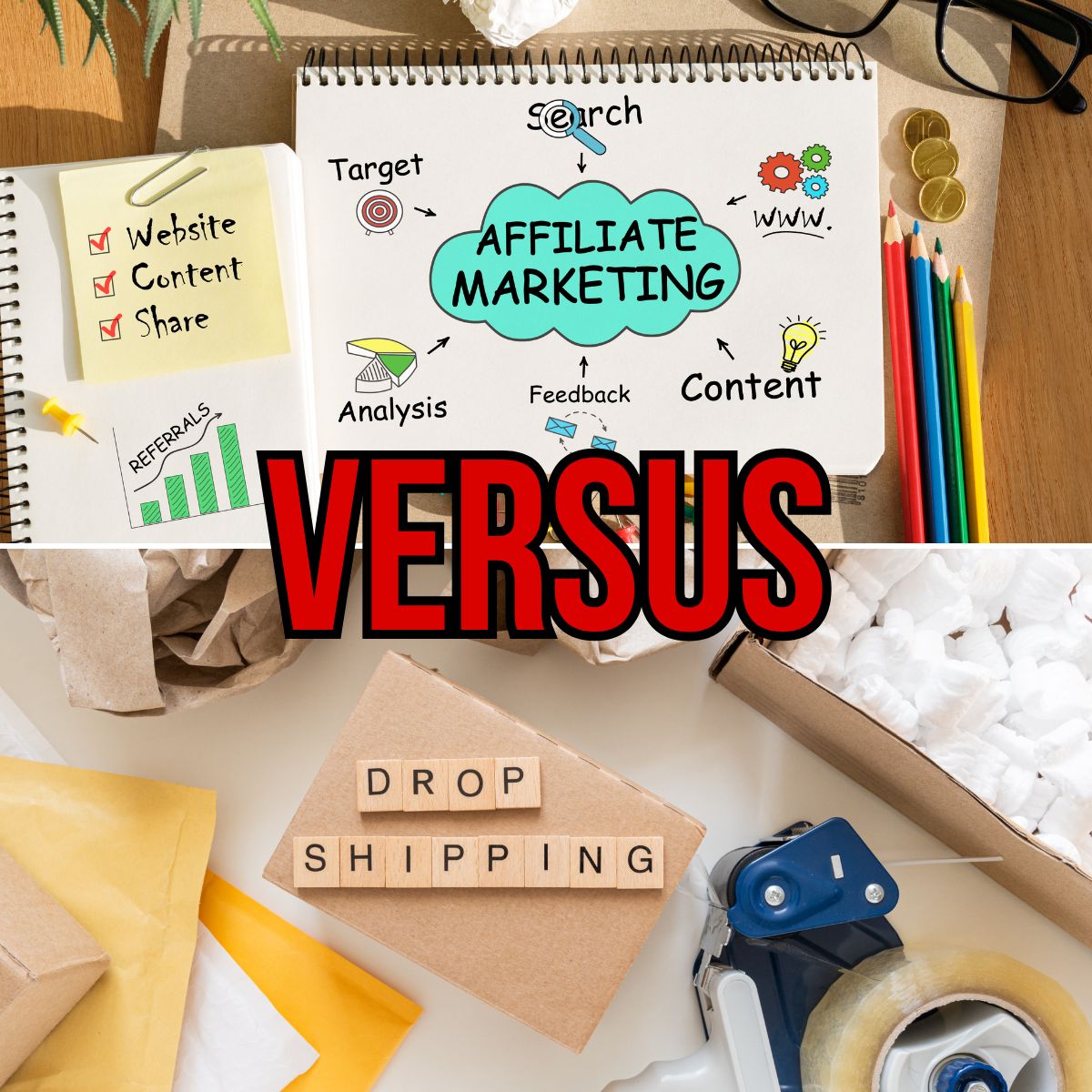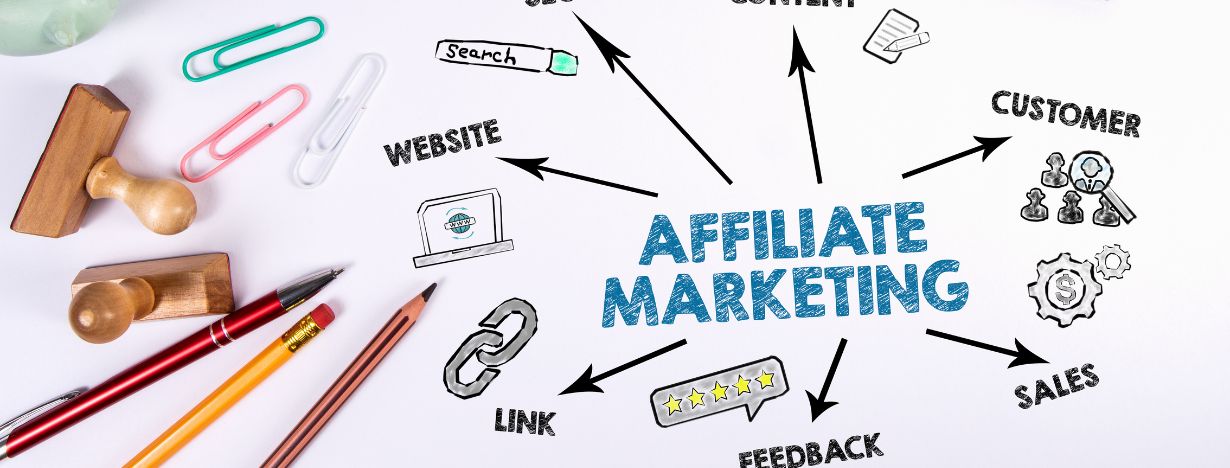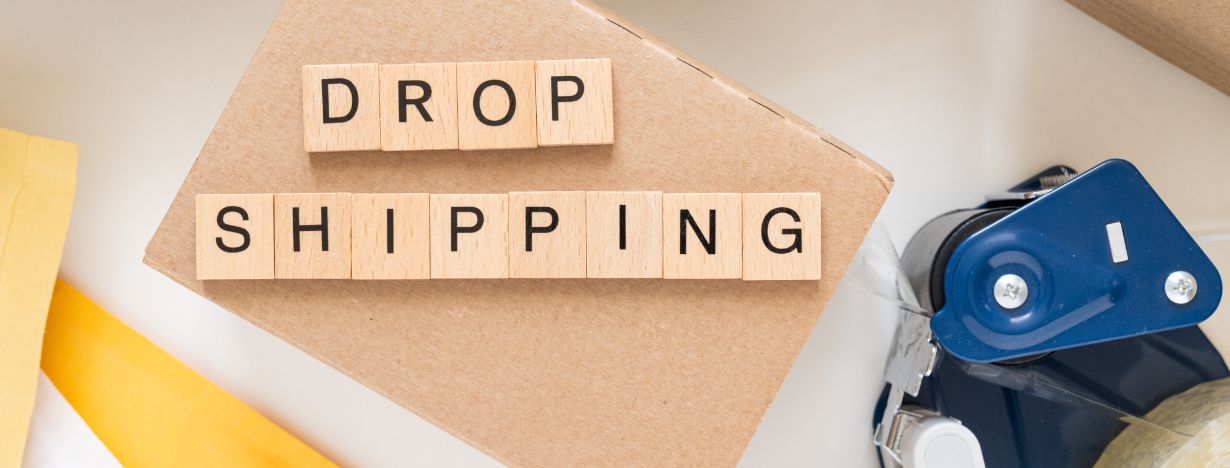
Like you in the past I've looked at ways in which to make a side income home. (in the hopes that I could turn it into a main income). I've looked into and tried both Affiliate marketing and dropshipping.
I'll be the first to admit that I have some bias to affiliate marketing, simply because I've spent over 20 years doing it. Both are however great business models and each offering massive opportunities for those looking to earn online.
Choosing between the two can be a tough decision. My suggestion would be to start off with affiliate marketing if you're new. Its got a lower barrier of entry due to not dealing with an online store, customers etc. At the same time it teaches you skills that you can pass onto a dropshipping business, I.E SEO, Social marketing and Email marketing.
I have however written this guide that breaks down everything you need to know, so you can compare affiliate marketing vs dropshipping.
I'll go through start up costs, profit potential, complexity and even long-term scalability.
Hopefully by the end of it, you'll have a clear understanding of each opportunity and know which one is best for you.

Simply put with affiliate marketing you recommend other companies products and earn a percentage of that sale as a commission.
You would pick a niche or topic and then join affiliate programs that have products or offers within your chosen niche. For example you'd join UberNet if you were interested in promoting Nootropics or Health Supplements.
There are affiliate networks for all kinds of niches such as Amazon, ShareASale and even Clickbank.
You would create content around your chosen niche and the products you wish to promote. This could be website articles, videos for YouTube or posts on social media.
In this content you'll include your unique affiliate link, when someone clicks that and purchases the network then credits you the commission into your affiliate account.
That's basically the process, you can see how simple the concept is. This is why affiliate marketing has gotten so popular over the last few years, it requires very little to get started but the potential for a passive income is high.
The commission that an affiliate program offers does vary, with most ranging from 5%-30%.
This is where UberNet does stand out.
We offer a massive 30% commission but you also earn recurring commission. When a customer purchases the product again, you continue to get commission. Many of the brands have reorder rates of 50%, which means it can be very attractive. This is increased even more due to the subscription service we offer to customers to help them save.
One last thing on affiliate marketing is how versatile it is. You can promote offers in so many different ways and on so many different platforms.
Whether you want to create a blog, grow a YouTube channel or post on TikTok and Instagram.
Successful affiliates focus on creating quality content, rank through SEO or become influencers within their chosen niche. This is going to help you grow an audience/community and attract traffic to your affiliate offers. Which results in sales and you earning commission.

Dropshipping is a way for you to have an online store but not having to worry about storing stock and dealing with inventory.
Put in simple terms when a customer orders a product, this order is sent to the supplier and they then ship to the customer. The profit generated is the difference between the price the customer pays and the cost of each order your supplier charges.
Dropshipping as a method to make money online has become more popular over the last few years.
One of the biggest reasons people dont create their own brand is the hassle you get with managing inventory and fulfilling orders.
The difference to affiliate marketing is that dropshipping means you can control your own online store, product section, pricing and even customer experience.
This does also bring in some issues.
Even though the profit can be higher, you need to deal with more operational elements of the business.
For example customer support, returns, supplier issues and shipping delays.
The biggest drawback is that its harder to create a higher quality brand, due to suppliers being limited. With affiliate marketing, you get to ensure your promoting the best quality product to your audience.
Before you can male a decision on whether or not you want to be an affiliate marketer or dropshipper, you need to understand the main differences.
The way you generate revenue are different for each model;
With affiliate marketing, you'll earn a fixed commission when someone purchases the product. This is usually a revenue share of the sale or a fixed amount. The amount you earn is going to depend on what the product owner sets the commission rate as.
Whereas with dropshipping, you can set your own prices. The key is making sure that the retail price that your customer pays is higher than production and fulfilment costs.
With the affiliate business model, you'll generally get paid your commission once you've hit a certain minimum pay out threshold.
The most common is $100. You'll also sometimes experience delayed payments to allow companies to do their checks.
The difference with dropshipping is you get payment instantly from the customer when they purchase.
The day to day responsibilities of affiliate marketer and dropshipper are very different.
Depending on what you want to do on a day to day will determine which model is right for you.
As an affiliate, you'd need to create content, increase traffic and grow your own audience.
Where as if you had a drop shipping business, you'll need to handle customer support, process orders, manage suppliers, build a sales platform and do the marketing efforts.
As you can see, they're very different. Its therefore important to have a think on what aspect of internet marketing you enjoy.

I started as an affiliate marketer around 20 years ago, what attracted me to it was just how simple it seemed. Sure its gotten a little more complicated BUT there are also a lot more opportunities as well.
Generally its a case of finding a product that you like, promote them and then generate commission when they buy through your affiliate link. It has such as a low barrier of entry.
You don't need to deal with inventory, customer service headaches or dealing with suppliers.
Its possible to start right away, there are low start-up costs. If you want to build a blog then you only need a domain name and hosting.
If you already have a social media account or a blog, you're already ahead of the game.
When I started, I made my first sale within 2 weeks. Even now I still see people making their first sale within a week, just by sharing products they genuinely use and love.
As your sales increase you can continue to scale up.
Start promoting other products, use other methods to generate traffic or test out different monetisation methods.
Want to know the biggest thing that I find appealing about the affiliate marketing model?
But here's what they don't tell you in those “make money online” courses: affiliate marketing can be frustrating as hell.
First off, you're completely at the mercy of someone else's business decisions. I once had a client who was making $3,000 a month from a single affiliate program. Then one day, the company decided to cut commissions in half. Just like that, his income dropped to $1,500 with no warning.
Then there's the traffic game. Unless you're promoting high-ticket items, you need serious traffic to make decent money. We're talking thousands of visitors to make hundreds of dollars. It's a numbers game that can take months or even years to master.
And don't get me started on payment delays. Most programs pay monthly, and many have minimum thresholds. When you're starting out and every dollar counts, waiting 30-60 days for a $50 payout is painful.

Dropshipping feels more like running an actual business because, well, you are. You set your own prices, build your own brand, and keep the customer relationships. When someone buys from your store, you're not just earning a small commission—you're potentially making 30-50% profit margins.
I love that you get paid immediately. No waiting for affiliate networks to process payments or worrying about commission cuts. The money goes straight to your bank account (minus payment processing fees, of course).
But let me be honest about the challenges. Customer service alone can drive you crazy. You're responsible for everything that goes wrong, even when it's not your fault. Product arrives damaged? That's your problem. Shipping takes three weeks? Customers are emailing YOU, not your supplier.
I've seen dropshippers spend entire days just handling customer complaints about products they've never actually touched. It's exhausting.
Plus, finding reliable suppliers is harder than it looks. Sure, AliExpress makes it seem easy, but dealing with inconsistent quality, long shipping times, and communication barriers is a real challenge. One bad supplier can destroy your reputation overnight.
This is the million-dollar question, isn't it?
From a pure numbers perspective, dropshipping usually wins on profit per sale. While most affiliate programs for physical products pay 3-8% commissions, dropshipping margins often hit 20-50%. Simple math says dropshipping is better, right?
Not so fast.
The thing is, affiliate marketing can be incredibly scalable with the right content strategy. I know affiliate marketers who wrote a single blog post three years ago that still brings in $2,000 monthly on autopilot. Try doing that with dropshipping—your store needs constant attention, product updates, and customer service.
Dropshipping, on the other hand, gives you customer data. That's gold. You can email your customers about new products, run retargeting campaigns, and build real customer lifetime value. Affiliate marketers? Once that customer clicks away, they're gone forever (unless they bookmark your site, which let's be honest, rarely happens).

Everyone says affiliate marketing is easier to start, and they're mostly right. You can literally create a TikTok account today and start promoting products. No store setup, no payment processing, no supplier research.
But here's what I've noticed: the “easy” entry point can be deceiving. Creating content that actually converts takes skill. Understanding SEO, building an audience, crafting compelling reviews—these aren't skills you pick up overnight.
Dropshipping has a steeper initial learning curve, but the skills are more structured. Setting up a Shopify store, finding suppliers, creating product pages—it's more complex upfront, but the path is clearer.
I've seen plenty of entrepreneurs successfully combine both models. The most common approach is starting a content site around a niche, monetizing it with affiliate links, then eventually launching your own products through dropshipping.
For example, you might start a fitness blog with affiliate links to supplements and equipment. Once you've built an audience, you could launch your own line of workout gear through dropshipping. Your existing audience becomes your first customer base.
But here's my advice: don't try to do both from day one. Master one approach first. I've seen too many people spread themselves thin trying to juggle multiple business models and end up succeeding at none of them.
It really comes down to your personality and goals.
Choose affiliate marketing if you're naturally good at creating content, enjoy writing or making videos, and want to start with minimal risk. It's perfect if you're still working a day job and want to build something on the side.
Go with dropshipping if you're more entrepreneurially minded, don't mind dealing with operational challenges, and want to build something that feels like a “real business.” Just be prepared for more complexity and higher upfront costs.
Whats my take on affiliate marketing vs dropshipping?
If you're completely new to online business, start with affiliate marketing.
Low barrier to entry, low startup costs and low risk business model.
The affiliate marketing business can generate high amounts of income and comes with a lot less of the headaches.
Its going to teach you a lot of digital marketing skills that could then be used with creating your own product in the future.
In fact once you've built yourself up as an authority within your niche, bringing some form of product out is not a bad way of adding another monetisation model to your overall business.
The biggest mistake I see people make is jumping straight into the most complicated model without understanding the fundamentals. Start simple, learn the ropes, then scale up.
Both industries are evolving rapidly. AI is changing how we create content for affiliate marketing, while dropshipping is getting more competitive but also more sophisticated with better tools and faster shipping options.
The key to success in either model isn't picking the “perfect” one—it's picking one that matches your strengths and committing to getting really good at it.
Whatever you choose, remember that success in online business comes down to providing real value to real people. Whether that's through helpful product recommendations or solving problems with your own products, keep that at the center of everything you do.
The internet has enough generic content and mediocre stores. What it needs is more people who genuinely care about helping their audience succeed.
Table of Contents